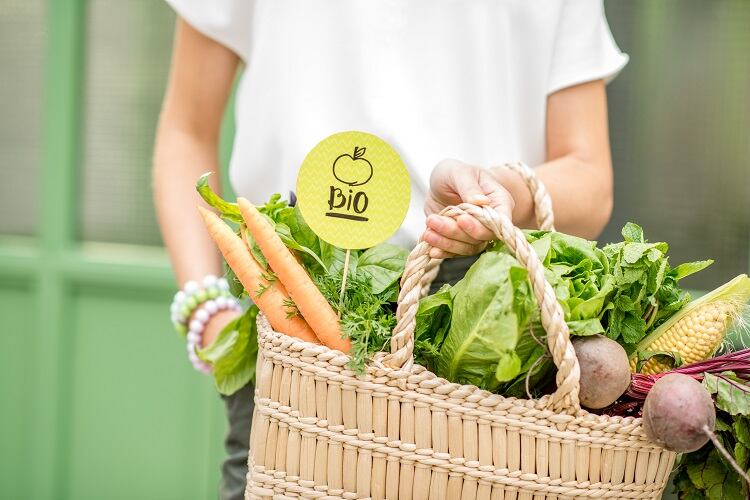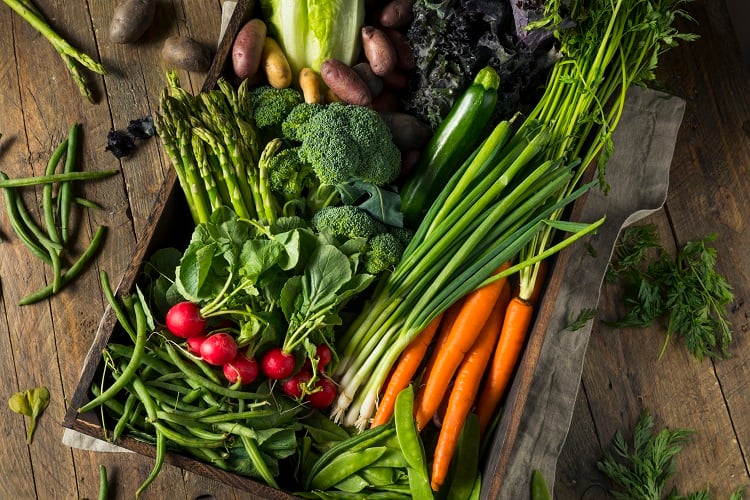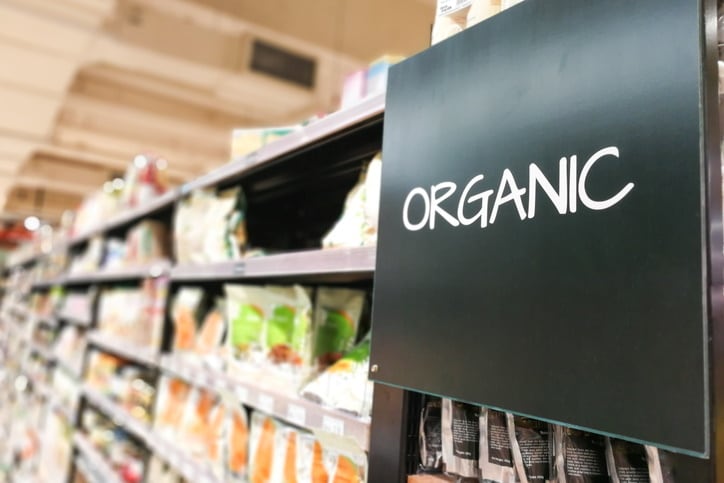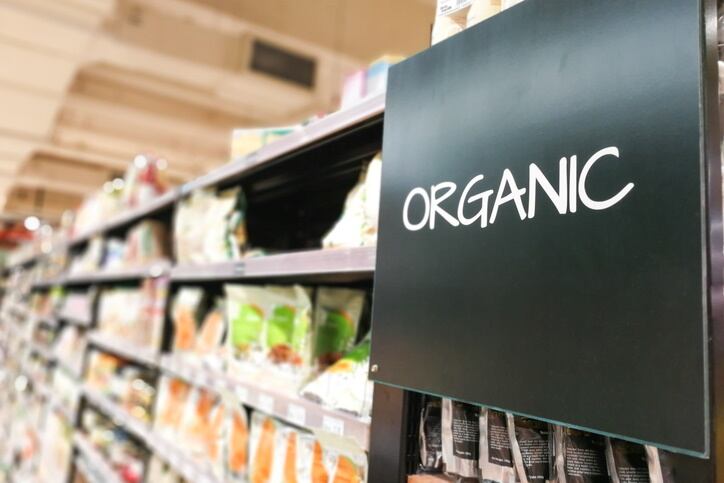Under the Green Deal’s Farm to Fork strategy, the European Commission has committed to a target of at least 25% agricultural land under organic farming by 2030.
Coming from a current starting point of just 8.5%, the Commission has its work cut out for it. “We don’t dispute that it’s a difficult target,” said Diego Canga Fano, Principal Adviser at DG Agri, who revealed a ‘big challenge’ lies in the varying starting points of the EU 27.
Challenges facing ‘ambitious’ target
“Organic farming has a positive environmental, biodiversity, and animal welfare effect,” Fano told delegates at a recent European Food Forum (EFF) event. “The more we focus on organic farming, the better it could be for other targets of the Farm to Fork and Biodiversity strategies,” he added, referring to concurrent pesticide and fertiliser reduction targets.
Achieving a 16.5% increase in land under organic farming by 2030 is undoubtedly a significant jump to make. However, if ‘things remain unchanged’ over the next nine years, a business-as-usual approach should see the amount of EU land used for organic agriculture increase to 15-18%.
The Commission’s decision to increase this 18% to 25% comes down to pure ambition. To achieve this goal, the EU will need to confront two key challenges.

Firstly, organic markets and agricultural coverage differ significantly between Member States.
Austria is currently leading the charge with 25.3% of its agricultural land already under organic farming. Estonia follows in second place with 22.2%, before Sweden (20.4%), Czech Republic (15.2%), and Italy (15.2%). Further down the ranks, Bulgaria has 2.3%, Ireland 1.6% and Malta at just 0.5%.
“Some of the Member States are very far behind and that’s a big challenge for the European Commission,” said Fano. As a result, the Organic Action Plan is not taking a one-size-fits-all approach, he stressed, adding that each Member States requires flexibility to reach the target.
The second challenge lies in food fraud, which could have a detrimental impact on consumer trust.
“The more popular organic becomes, the more dangerous the risk of fraud,” explained Fano. The Commission will ‘have to pay a lot of attention to this issue’, he continued. “Consumer trust is everything in organics.”
Simulating demand and ensuring consumer trust
The Organic Action Plan details how the Commission plans to achieve its goal via three axes: boosting consumer demand, stimulating production and processing; and strengthening environmental sustainability.
The first axis focuses on stimulating demand and ensuring consumer trust. According to 2020 data, both these elements are on the up.
A 2020 Eurobarometer survey revealed that 82% of citizens believe organic products are more likely to comply with specific rules on pesticides, fertilisers, and antibiotics, 81% say organic products are more environmentally friendly, and 80% believe they are produced with higher respect for animal welfare.
Recognition of the organic logo is also increasing. According to the survey, 56% of citizens recognise the organic logo – a figure that is up from 27% in 2017.
Retail sales for organic products have increased by more than 128% in the last decade, and on average, each European spends around €84 per year on organic products. This differs from Member State to Member State. Per capita, the Danes spend the most (€344 annually) on organic products.
To increase the consumption of organic products and strengthen consumers’ trust, the Commission will undertake actions to promote organic farming and the EU logo; promote organic canteens and increase the use of green public procurement; reinforce organic school schemes; prevent food fraud; improve traceability; and facilitate contribution of the private sector.
Other axes include focus on stimulating conversion, reinforcing the value chain, and improving the contribution of organic farming to environmental sustainability.
Focus on national, regional, and local players
The plan has been welcomed by IFOAM Organics Europe, which stressed the role of Member States in adhering to the Commission’s target.
“We must not forget the importance of the involvement of national, regional and even local actors for this action plan to be as successful as possible in reaching the 25% organic target…” noted IFOAM director Eduardo Cuoco in a statement.

European Committee of the Regions (CoR) member and rapporteur on the ‘Action Plan for the development of EU organic production’, Uroš Brežan, however, has raised concerns there is ‘no local and regional dimension’ to the plan.
While unable to provide the Committee’s official opinion – as the Action Plan has yet to be debated amongst its members – Brežan said he is ‘disappointed’ with the ‘low profile’ of the plan.
“Even though local and regional authorities are directly involved in developing organic farming in their regions…the action plan ignores the key role played by local and regional authorities in this area,” he told delegates at the EFF event.
“The European Commission should urgently set up and coordinate a network of municipalities committed to taking measures to promote resilient sustainable agricultural and food systems.”
Minimum target in mass catering?
Brežan has also taken issue with the Commission’s proposal for green public procurement, which he argues should be include a minimum target.
“I regret that the new action plan does not include a minimum target for organic products in mass catering, as this is an important means of developing and structuring local organic production and promoting sustainable and regional development.”
The CoR member continued: “The introduction of organic products in catering facilities is often part and parcel of local policy measures. The Committee calls for efforts to ensure that 75% of school canteens will consist of healthy, organic, or at least local, product.”
Cost may well be the ‘main barrier’ hindering the adoption of organic products in mass catering, suggested Brežan. However, local experience often shows that there are ‘means’ of keeping the budget under control, he continued. “In mass catering, food costs usually only account for 25% of the total cost of a meal. Savings can therefore be made on non-food components of expenditure, and then transferred to foodstuff purchases.”
Ultimately, the CoR member said he believes in setting a threshold for organic food in mass catering, which he argued could have a ‘significant effect’ in ‘stimulating demand’. “That’s why I see great potential in the openness of public procurements included in the proposal.”

In response, DG Agri’s Fano said the Commission’s decision to exclude mass catering from the plan was deliberate.
“When setting European targets, we were extremely careful not to set too many…because of this huge difference between Member States,” he explained.
“We encourage national targets, but it’s very different to have a European target on green public procurement when there is a huge difference between Member States. So it was a careful choice to avoid that.”
‘No consistency with CAP regulations’
According to the Commission, the CAP will be ‘mobilised fully’ to support the implementation of the Action Plan.
Specifically, an additional stream of funding will be made available through eco-schemes, with CAP support including technical assistance and the exchange of best practices and innovations in organics. Farm advisory services will also be strengthened to promote relevant knowledge exchange.
“The organic movement welcomes that the Commission will ensure Member States make the best use of the possibilities offered by the new CAP to support their national organic sector and that farm advisory services will be strengthened,” noted IFOAM Organics Europe’s Cuoco.
“It is time to properly reward organic farmers as well as conventional farmers transitioning to organic for the benefits they deliver to nature and society, and to properly fund farm advisory systems geared towards organic and other agroecological practices.”
For CoR’s Brežan, however, the CAP needs reworking if it is properly service farmers transitioning to organic agriculture.
The action plan has ‘no consistency’ with CAP regulations, he argued. “While we welcome the objective of reaching 25% of agricultural land in organic farming to promote the transition to sustainable food systems, as including in the Farm to Fork strategy, we fear this goal will not be achieved without a deeper reform of the CAP regulation.”
The CoR is not against fiscal penalties being including in the CAP to encourage Member States to act, for example. In this context, if Member States did not achieve their organic targets, they could be ‘penalised financially’, Brežan suggested.
“Experience has shown that without financial sanctions, environmental objectives are never achieved.”




